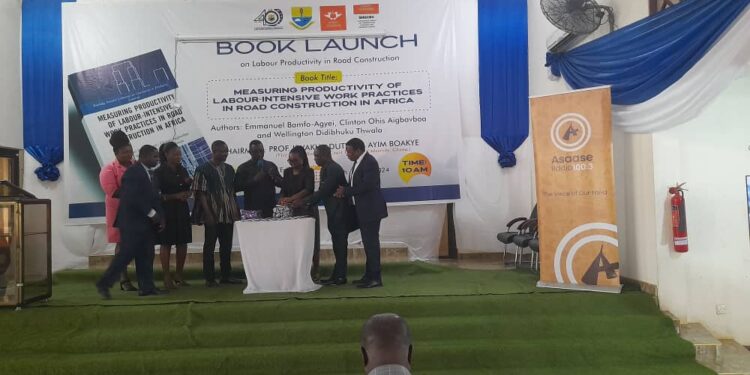A book titled “Measure Productivity of Labour-Intensive Work Practices in Road Construction in Africa” has been officially launched in Cape Coast, shedding light on ways to enhance efficiency and productivity in the construction industry across the continent.
The book, coauthored by Professors Emmanuel Bamfo-Agyei, Wellington Didibhuku Thwala, and Clinton Ohis Aigbavboa, focuses on addressing the unique challenges in Ghana’s road construction sector by emphasizing labor-intensive work practices.
Professor Emmanuel Bamfo-Agyei, Dean of the School of Graduate Studies at Cape Coast Technical University (CCTU), spoke about the inspiration behind the book, which emerged from a research project on road construction in Ghana and South Africa.
He explained, “The inspiration behind it is helping the rural folk, even though the governments and the World Bank were trying to give them money. This book comes out with some policy direction where it will help those beneficiaries in the rural communities to be more productive in their work.”
He further recommended that the Ghana Productivity Safety Net Project should focus on attracting young people to the sector, as the current workforce is predominantly elderly, noting “We need to look at the incentive to attract more young people… when the young people are attracted, it will be a way of training them to be skillful.”
He also emphasized the importance of considering the timing of work to accommodate local conditions, ensuring that road construction in rural areas is completed efficiently, which would, in turn, reduce transportation costs and make food cheaper in cities.
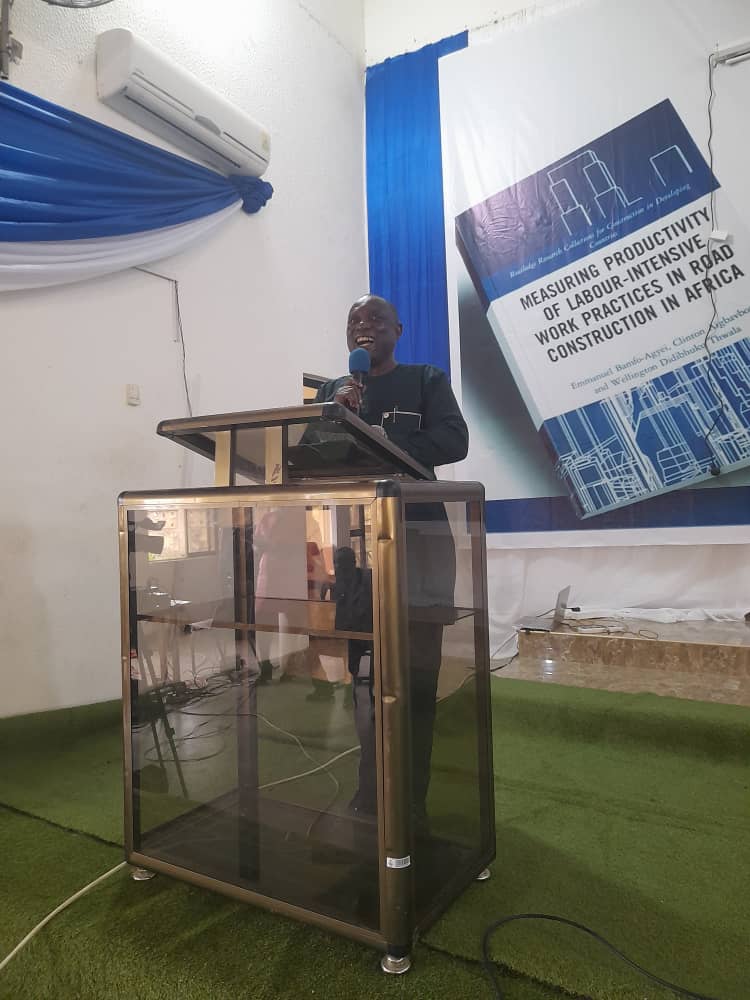
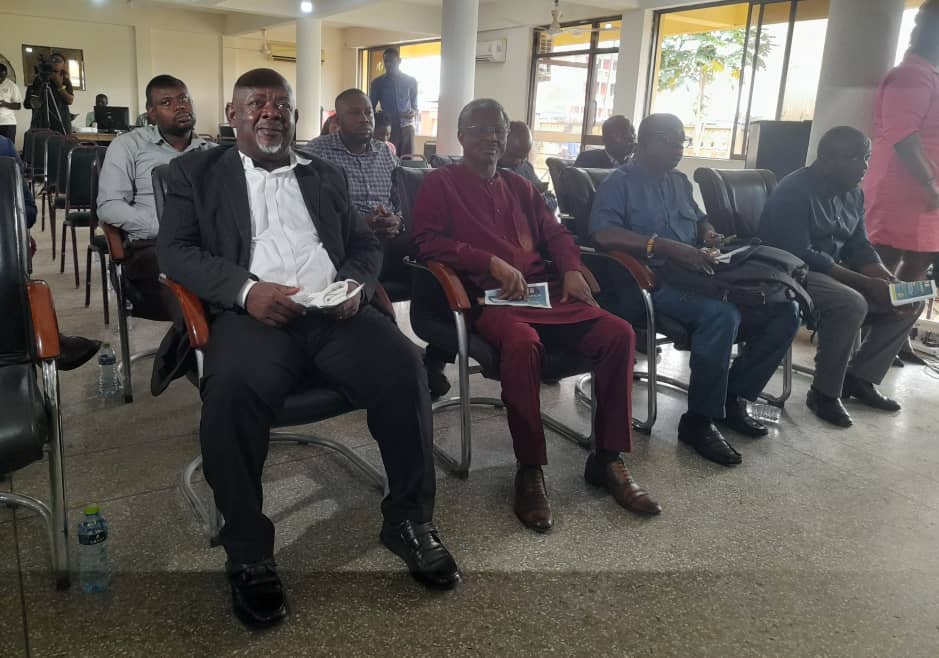
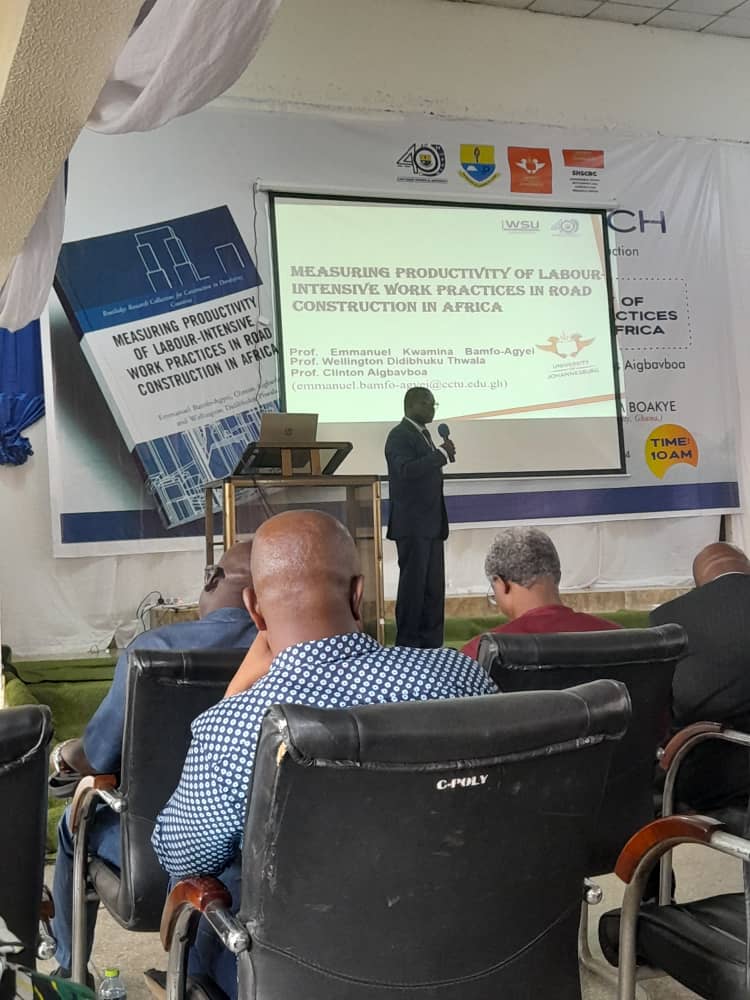
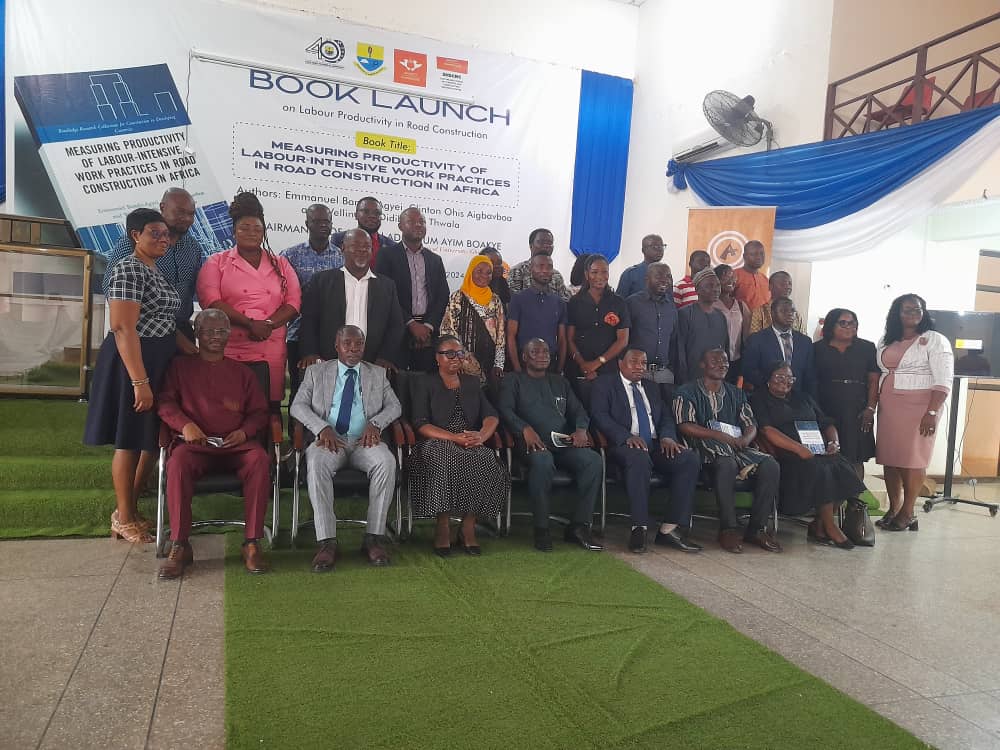

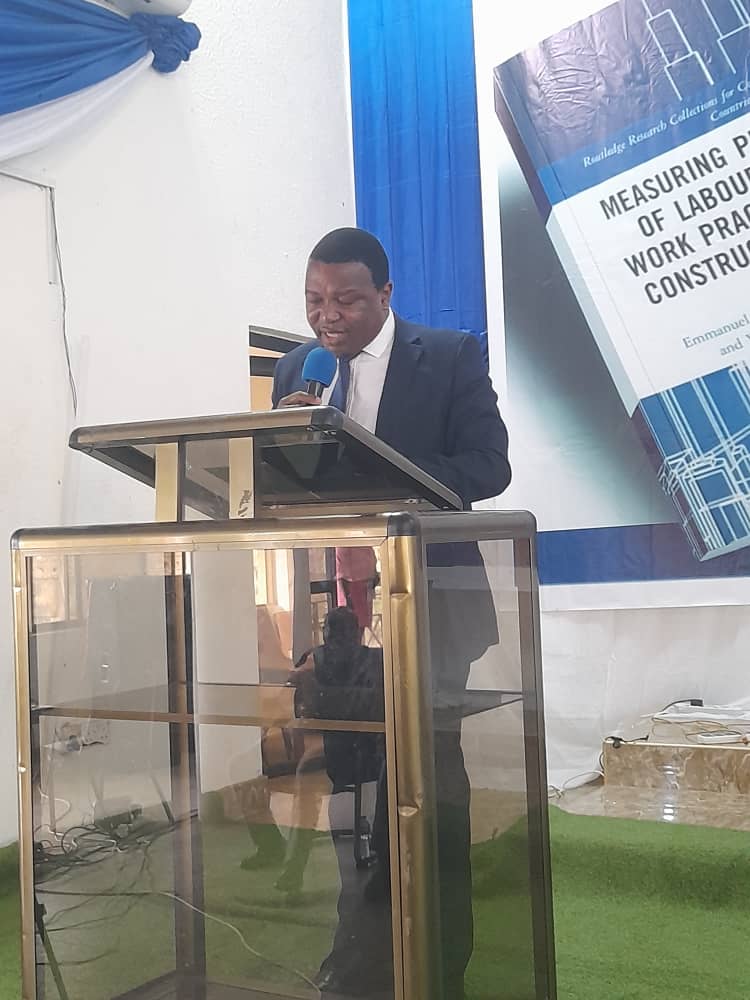
Coauthor Professor Wellington Didibhuku Thwala highlighted the disparity in productivity between Ghana and South Africa, with the latter being ahead, revealing that “In terms of productivity, South Africa is a little bit higher, so Ghana is actually still lagging behind, emphasizing that the book advocates addressing unemployment and poverty through labor-intensive construction methods. This book is very important, and the information in there would help our industry and our economy,” he added.
Professor Gabriel Nani, a representative of the Ghana Institute of Surveyors, echoed the importance of the book for policymakers, urging them to consider its content to boost Ghana’s economy.
He pointed out the critical role of government spending in infrastructure and how labor-intensive methods can contribute to solving unemployment and poverty.
Read Also: Ghana Bans Grain Exports Amid Severe Dry Spell to Ensure Food Security
Source: Flora Tang & Selina Thompson/ATLFMNEWS

















